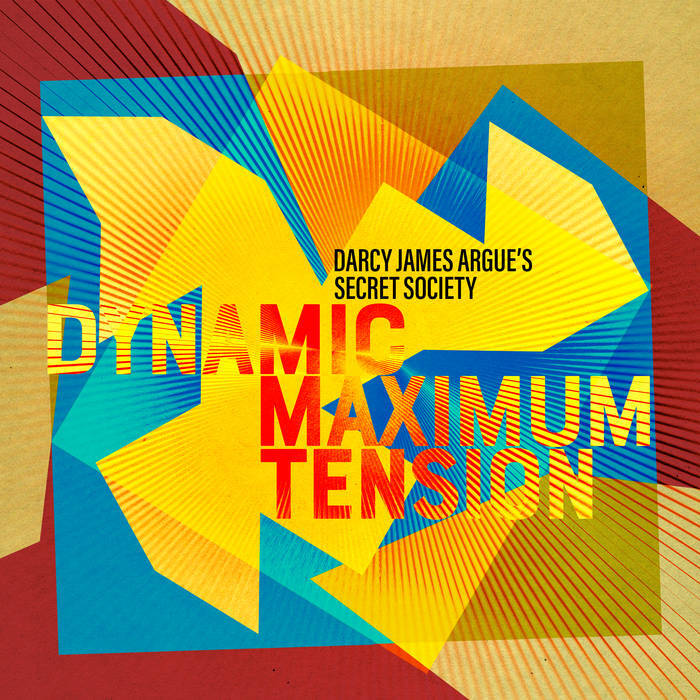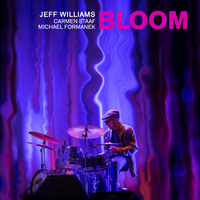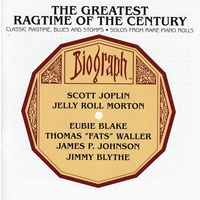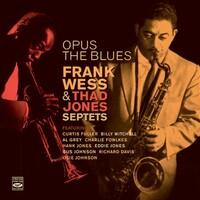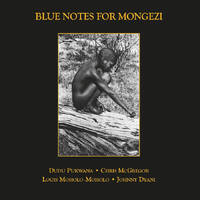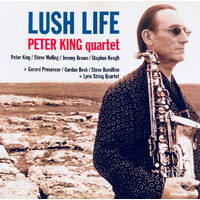Darcy James Argue's superb double-album Nonesuch debut offers compositions written throughout his career. He turns to twentieth-century thinkers for "ideas that can help us in the present, that we can reexamine and reconfigure for our own purposes." These include futurist designer Buckminster Fuller, cryptanalyst-computer scientist Alan Turing, composer-arranger Bob Brookmeyer, actress-screenwriter Mae West, trumpeter-mentor Laurie Frink, and musician-beyond-category Duke Ellington, among others. Like West, Argue seems to control his own path. He may not yet be the tycoon she was, but he is well-lauded (Latin Grammy, Guggenheim, commissions) and producing fascinating projects, including Dynamic Maximum Tension.
Argue bristles at a "not your grandfather's big band" label stuck on him, a notion that his music represents a break with the past. "If your grandfather's big band was Cab Calloway or Jimmie Lunceford or the 'old testament' Count Basie band, that's some pretty hip shit, you know; your grandfather was into some stuff," as he puts it. "A lot of the tracks on Dynamic Maximum Tension are reflective of my personal journey in going back to the foundations of this music and trying to find ways to incorporate that into my compositional voice," he said in an online pre-release listening session (Jazz Composers Present). As part of that session, he discussed several pieces that were direct inspirations for compositions on the album.
"Tensile Curves," for one, is a response to Ellington's "Diminuendo and Crescendo in Blue," in which Argue uses decreasing tempo as an analog to the diminishing dynamics of the Ellington work. Beginning at the snappy "Diminuendo in Blue" tempo, it moves through a series of metric modulations, ending as a slow blues. Argue admires how Ellington sets up and foils expectations, doing things one doesn't anticipate, like taking an unexpected detour on a blues form, but that "make sense retrospectively." As a corrective to Gunther Schuller's account of the Ellington piece in Early Jazz, Argue published a granular analysis ("Misunderstanding in Blue") that concludes, disarmingly, with "I'm a bit worried that all this analytical talk might make 'Diminuendo' sound like a purely intellectual exercise, but if so, there's a simple cure: just close your eyes and listen to the damn thing."
The album ends with "Mae West: Advice," a bright ping featuring the brilliant singer, songwriter, and visual artist Cecile McLorin Salvant, with whom Argue is involved in another major project, the song cycle Ógresse. Salvant's fabulous instrumental foil on the cut is Ingrid Jensen, her former band mate in Artemis. The lyric is a sonnet by Paisley Rekdal, who quotes West in some lines, inventing others. The concluding line, "Don't be a noodle; be cool and collect," which Salvant sings to purring perfection, is true West.
From the tensile strength of the first chord of "Dymaxion" (YouTube, below) to the dark growling power of "Ferromagnetic" and the final word of "Mae West," Darcy James Argue's Secret Society's Dynamic Maximum Tension is a delight. There is more to report but, like Argue said, "Just close your eyes and listen to the damn thing."
https://www.allaboutjazz.com/dynamic-maximum-tension-darcy-james-argues-secret-society-self-produced
(075597903508)
| SKU | 075597903508 |
| Barcode # | 075597903508 |
| Brand | Nonesuch Records |
Be The First To Review This Product!
Help other Birdland Records users shop smarter by writing reviews for products you have purchased.

